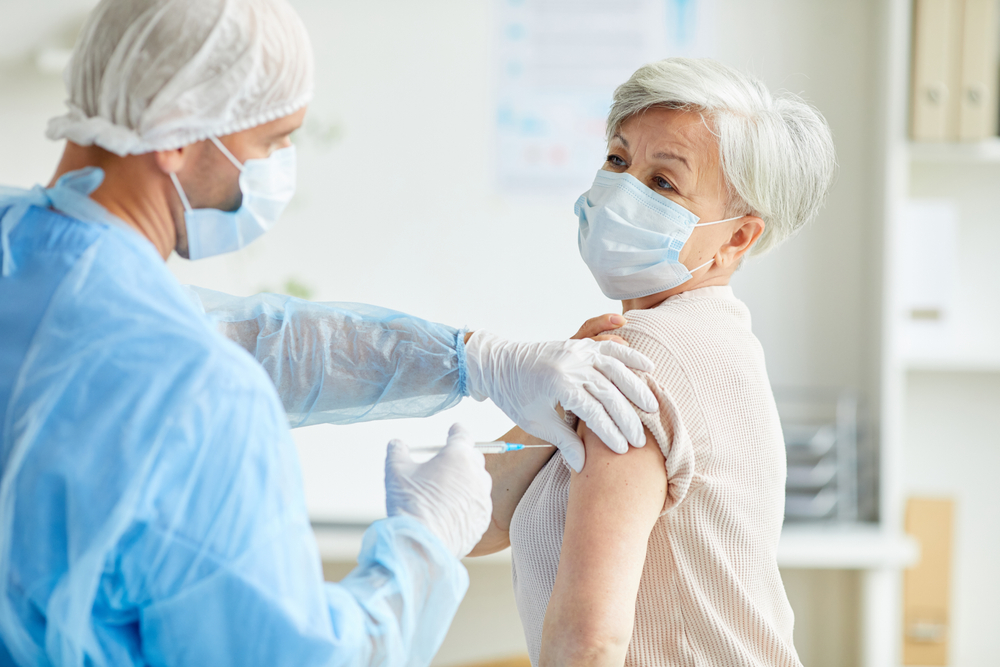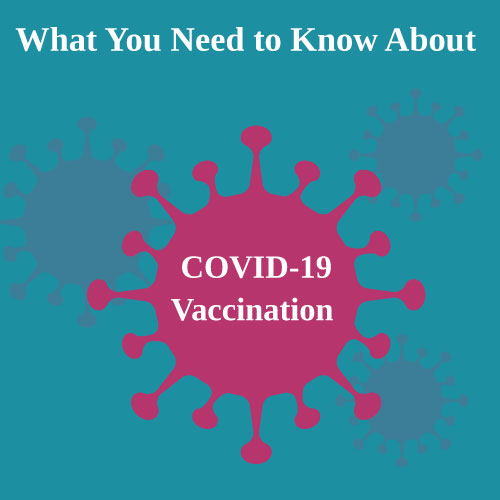 March 2, 2021
March 2, 2021
Seniors over the age of 65 have been disproportionately affected by COVID-19. According to the CDC, seniors are more likely to require care if they contract the virus than adults ages 18 to 29. Here’s what you need to know about getting the vaccine to help protect older loved ones.
Quick Key Points About the COVID-19 Vaccine
- The CDC recommends that people, especially seniors, get vaccinated against COVID-19.
- Vaccines are being distributed, mainly through local and state health departments.
- Even if you receive the COVID-19 vaccine, remain vigilant about protecting yourself and others from contracting the virus and spreading it.
Where Can I Get Vaccinated?
As of December, vaccines are being distributed throughout the country, with the state and local health departments taking the lead in the rollout. To get a vaccine, here are the places you should look:
- Begin with your local health department to get information about where to get a vaccine and who is eligible, which is listed on most state public health websites. The CDC maintains a list of State and Territorial Health Departments to help you find COVID-19 related vaccine information in your area.
- Speak with your pharmacist as some pharmacies have begun to give out shots. Depending on your location, age, and risk factors, you might be able to schedule a time to get inoculated. Your pharmacist can also answer questions you may have about the COVID-19 vaccine.
- Call your doctor or hospital about vaccine sites in your community. For those who receive care through a health clinic or home health care provider, talk with your caregiver or team to get the latest information about COVID-19 vaccination policies.
Is the COVID-19 Vaccine Safe?
The COVID-19 vaccines have been evaluated and approved by the FDA. The mRNA vaccines being used in the US do not use the live virus that causes COVID-19, so you cannot get the virus from being vaccinated.
Side effects from the vaccine are normal signs that the body’s immune system is building protection to the virus. They may include pain and swelling at the injection site, chills, tiredness, headache, and fever and should go away in a couple of days.
When receiving a vaccine, it’s required that you wait at least 15 minutes to check for an allergic reaction, which is rare but can occur, particularly in those with anaphylaxis. If you are concerned about possible side effects, talk to your doctor.
Will I Still Have to Wear a Mask After Getting Vaccinated?
Yes. While vaccines effectively reduce illness, we don’t know whether they reduce the likelihood of contracting COVID or being an asymptomatic carrier. For the time being, it’s essential to keep following social distancing guidelines to keep communities safe.
What Is Home Care Doing to Help?
Home care agencies are continuing to assist families and those on the front line by providing compassionate care to seniors. Accessible Home Health Care recommends that our patients receive COVID-19 vaccinations as soon as they are able. All of our in-home caregivers will be inoculated unless they are exempt, and patients will be informed of the vaccine status of caregivers. Read our Infographic to Learn More.

Getting vaccinated is the next step in protecting yourself and senior loved ones from COVID-19. For more information about our home care efforts during coronavirus, contact us.



